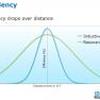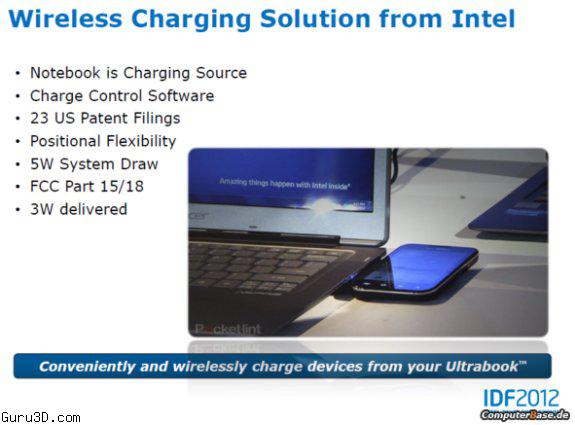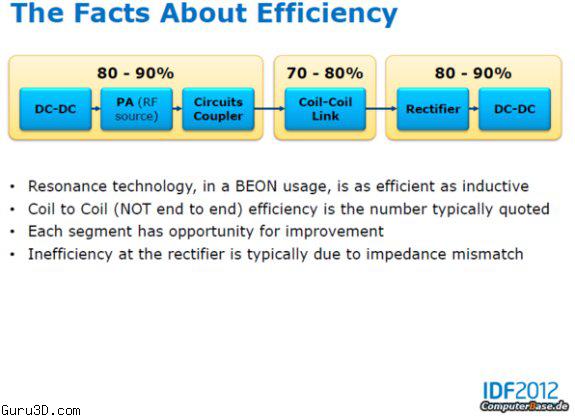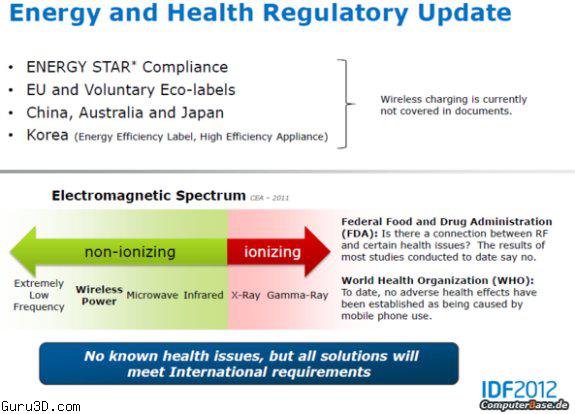Intel has been chatting about Wireless Charging at the IDF in San Francisco. The company is placing its bets on the "resonant" method rather than "inductive", claiming it offers higher flexibility. The chip giant acknowledges that inductive charging offers the best efficiency when the device is placed in exactly the right spot but says inductive charging efficiency drops much faster over distance, which gives resonant charging a better overall efficiency.
The first Haswell-based ultrabooks with Intel Wireless Charging Technology may arrive in 2013, they'll enable you to charge a phone (that supports wireless charging) simply by placing the device near your ultrabook. At a later date you can also expect All-in-One PCs with the technology, paving the way for wireless charging for keyboards and mice.
Whether wireless charging is going to become the killer technology that Intel hopes it will be remains to be seen. One potential issue is the large size of the transmitter and receiver, according to Intel's documents, the transceiver has a form factor of 70mm x 30mm x 5mm, it takes up 2100 square millimeter, and the receive takes up 560 square millimeter. Size restrictions (and price) are probably among the main reasons why Nokia isn't building the technology directly into its Lumia 920 but requiring users to buy a wireless charging shell. However, the chip giants mentions that area savings of over 50 percent can be achieved when the technology is integrated on a motherboard, so eventually the technology will take up less space.
A second issue is whether the technology will be flexible enough, being able to charge your phone by placing it near your laptop sounds like a great idea, but will it be practical? Will it be flexible enough? Will it charge fast enough? Until the first reviews arrive we won't know.
And last but not least, what really displeases me about wireless charging is how grossly inefficient it is. In a time when the focus is on energy efficiency and green computing, wireless charging delivers exactly the opposite. According Intel's own marketing slides, efficiency of the current technology ranges from roughly 45% to 65%. In a time when computer power supply makers are slapping themselves on the back for delivering PSUs with efficiencies of over 90 percent, the efficiency of wireless charging is a huge step backwards to the time when energy consumption wasn't really a major concern.
In my mind, Intel would do everyone a favor by focusing on better batteries rather than inefficient charging gimmicks.





